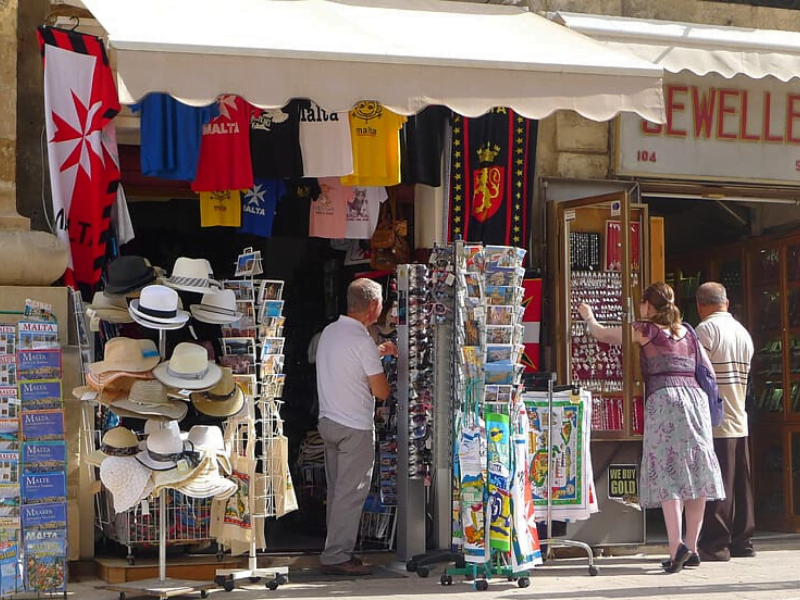A survey carried out by the Chamber of Small and Medium-sized Enterprises (SMEs) shows the measures put forward by the government to help businesses cope with the economic and financial impact of the coronavirus “are no way close to what businesses need to sustain jobs”.
The study found that 35% of respondents will not be able to sustain their employment levels past a couple of weeks, while for the rest it will be a matter of months.
On Saturday, Prime Minister Robert Abela announced that those businesses and self-employed persons financially impacted by the coronavirus situation will have their tax and social security payments due in the next two months postponed for a year. Some business sectors, including tourism, hospitality and transport, will be eligible for the payment holiday.
Slamming the measures, the Chamber said that the government seems to not understand the dire situation of Maltese businesses.
“Businesses need real measures now and today as they will not be able to sustain their workforce anymore. The time for a second and third wave of help is needed here and now, or it will be too late,” the Chamber said.
It said members were “appalled” when realising that the burden of quarantine leave was “secretly” placed on businesses in line with jury leave.
“This came about through an amended Legal Notice that was published during the night following the meeting with employer bodies with the Prime Minister and preceding the announcement of the measures the following day. No mention of this was made at any point, or consultation took place,” the Chamber said.
This meant that the government wanted employers to bear the cost entirely, the Chamber said as it called on the government to immediately cover two-thirds of businesses’ wage bill across the board including those of self-employed, to suspend taxation, VAT and social security contribution, mostly without repayment requirements for all businesses.
The Chamber called on the government to place guarantees to people coming with good imports to Malta that they could come up to ports to unload and allowed to go back, among other measures.
“These are measures that must be taken now rather than end up being forced by circumstances and face much damage. They are necessary now to avoid mass unemployment and people ending in a dire situation. The government will have to shoulder the responsibility of measures taken too late,” the Chamber said.
A similar sentiment was echoed by entrepreneur Alec Mizzi who called on the government to adopt an “emergency social and solidarity pact” in the wake of Covid-19.
He said that measures postponing tax would have no impact on their profit and loss and, ultimately, their survival. “If a restaurant is paying its staff whilst shut, what help is it that it can postpone tax payments, especially if sales (and hence VAT and income tax) are nil anyway?”
Although Prime Minister Robert Abela said the economic burden would be shouldered by the government, employers and employees, the measures proposed didn’t fall in line with his statement, Mizzi added.
Mizzi suggested that all businesses forced to shut down should continue paying their employees “say, 75% of their salary”, with 50% being funded by the government, and 25% by the employer”.
In this way, Mizzi argued, employees will contribute by accepting a 25% lower salary. If the government refused, Mizzi expected the employee to fork out one-third of salary, equal to what major businesses and the government would fork out.
He also called for the government to half rents due during this emergency period through legislation, so that both landlords and tenants shared the burden.
“Yes, the country may need to dip into its reserves and suffer deficits once more, but this is a matter of survival. Certainly, the EU will allow State aid, and all taxpayers will accept eventual new taxes to help us get out of this nightmare with as little social and financial fallout as possible. This is social solidarity in practice. This is what we expect from our leaders,” he concluded.
Meanwhile, in a letter to the government, some of the other major businesses in Malta have asked for a bailout – these include Dizz Group (a company that went from rags to riches under Labour in circumstances that are still due scrutiny, especially after evidence of close relations to Joseph and Michelle Muscat), supermarkets that are among the only sectors doing well in the situation, and other businesses that are known to have profited from Labour Party deals at the cost of taxpayers.
The Chamber of SMEs’ appeal is for small businesses, which in Malta are largely run by families, and which have been excluded from the appeal by elite corporations with the power to influence government policy.
On Monday, the Chamber’s statement and proposals were backed by the Malta Producers’ Assocation. In a statement, the association said that given its dependence on travel as well its operations necessitating large groups the industry “has completely ground to a halt with productions on the ground”.
“This means that the hundreds of crew and professionals who work solely in the TV/film industry, most of which are self-employed, have their income now suddenly reduced to zero,” they said. The association called on Abela to consier the proposals put forward by the Chamber of SMEs “with urgency”.












